Source: www.kayhan.london
October, 25 2017
Translation by Iran Press Watch
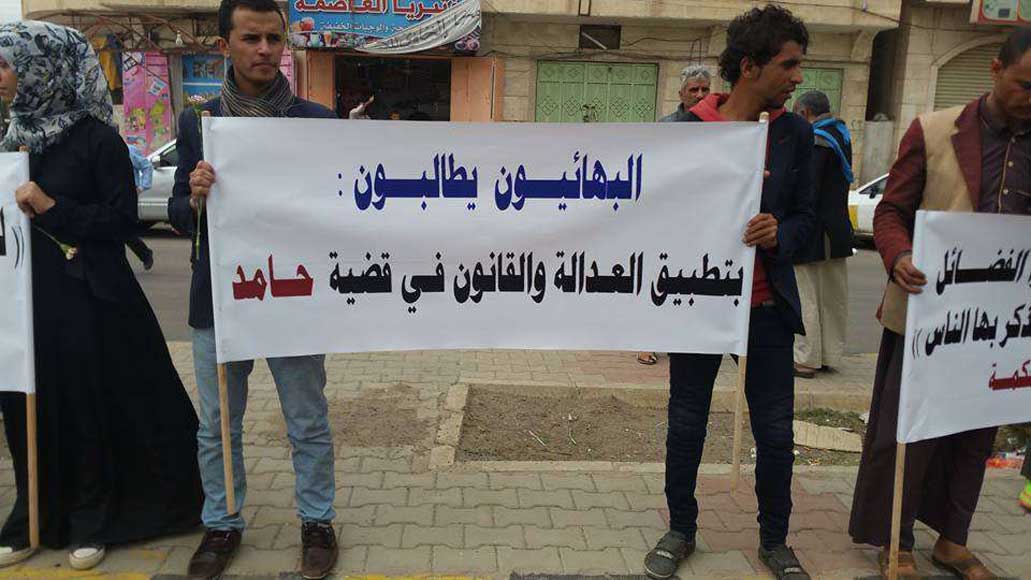
By Musa Sharifi – The Baha’is of Iran have dealt with deprivations, difficulties and excruciating pressures caused by the ever-growing discrimination by the Velayat-e faqih (Guardianship of the Islamic Jurist) regime, which intensified as they were celebrating the bicentenary birth of Baha’u’llah, the founder of their Faith. Simultaneously, their fellow believers were being violently suppressed in Yemen, by the Yemeni agents of the Islamic Republic of Iran.
Currently, not only are Yemen’s Bahá’ís unable to freely celebrate their Prophet’s birthday, as all other people do, but they are face the wrath of Houthi retrogressive sectarianists, who, with the financial and arms support from the Tehran Regime and the force of an armed coup d’état, have occupied Sana’a.
According to reliable Yemeni sources, the Houthis linked to Tehran are the most regressive stratum among the people of this country. This group has fully assimilated the regressive, fossilized and medieval teachings of the Qom mullahs. Having gained power in Sanaa, this retrogressive sectarian group has oppressed the Baha’is more than all other Yemenis. In the view of this group, the only crime of the Baha’is is their Faith. There is no other reason. Bahá’ís not interfere in politics, and are among the most literate population in Yemeni society and the rest of the Arab countries, who conscientiously endeavor to play a constructive role in the development of their countries.
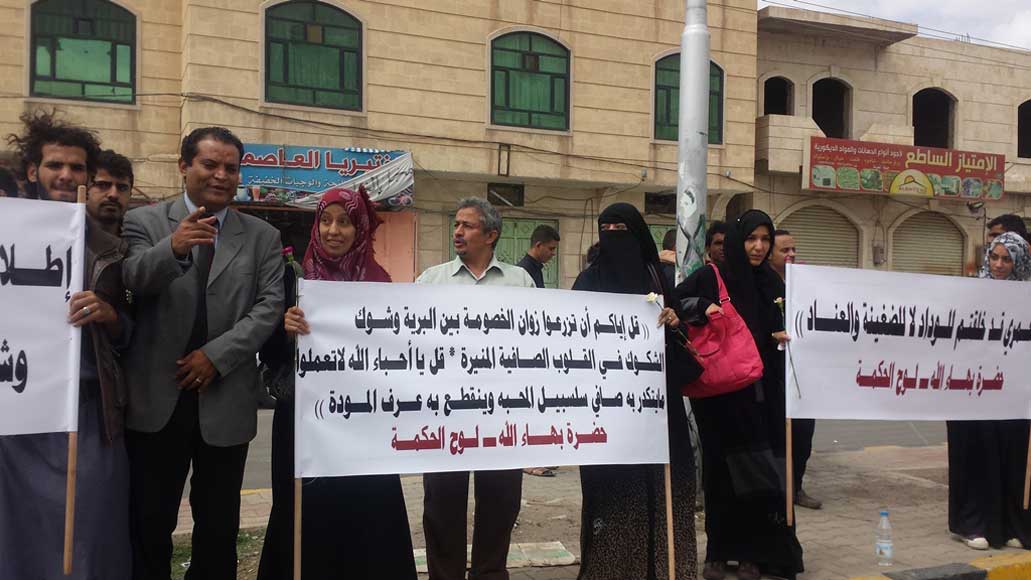
The Baha’i Faith originated Iran and, as all other religions that has emerged from this land, it is full of peaceful teachings for all human beings. The teachings of Baha’u’llah are an invitation to all humanity to peacefulness, truthfulness, faithlessness, sincerity, and an effort to know the Creator God. Respect for other religions has a special place in the Baha’i Faith, to the extent that in some of Baha’u’llah’s utterings, he makes references to various themes in Islam and Christianity, and refers to them with fondness. It is appropriate for Iranians, who have always been proud of their civilization and cultural heritage, to raise the question of ‘why Baha’is, whose Faith is full of the teachings of Iranian civility, are subjected to such discrimination, cruelty and oppression in Iran.

As if the brutal discrimination against the Baha’is under the shadow of the Islamic Republic Regime was not sufficient, it now extends beyond the borders of Iran and is enforced by the Regime’s puppets in Yemen.
On Sunday October 22, Houthi militants staged a brutal raid on the house of Waleed Ayyash, one of the leaders of the Baha’is in Sanaa. Ayyash was arrested along with his brother, Akram Ayyash, and detained them in an unknown location.
As reported by the daily news, Al-Bayan, quoting reliable Baha’i sources in Sanaa: “Houthi militants, using four armored vehicles, attacked the house of the Baha’i leader WaleedAyyash, who had been arrested by the militant group four months ago, and took his brother away with them.”
According to Baha’i sources, Houthi militants’ crackdown forces also attacked the house of Madzin Waleed, son of Waleed Ayyash, with the intent to arrest him. As he was not at home, they arrested his brother, Waleed, instead.
The same sources confirmed that the gunmen in one of the armored vehicles targeted the locked front door of the house of the Baha’i leader and mowed it down with a storm of continuous bullets. After breaking-in they looted the house and took with them whatever they found therein.
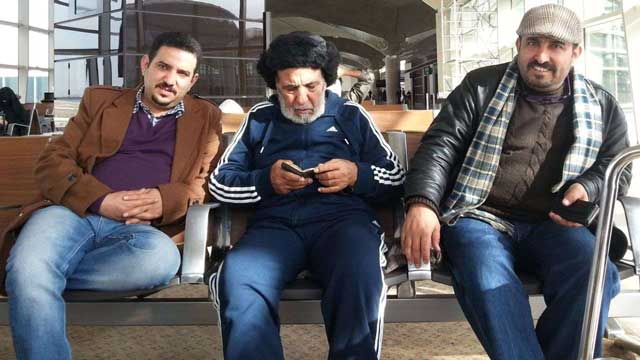
Meanwhile, Baha’i Faith’s Yemeni Defense Organization, a nongovernmental organization, in a press release stated that violations of the rights of Baha’i citizens, who have always behaved peacefully and do not interfere in politics, are a clear sign of Sana’a decision-makers’ link to their sectarian and ideological leaders in Tehran and Qom. The brutal and inhumane actions of the Houthis against Baha’is in Yemen indicate that the directives, regarding many matters, including the Baha’is in Yemen, are being handled and led by the Iranian regime.
In a statement by the “Baha’i Faith’s Yemeni Defense Organization”, it is said: “Since the resolution of the United Nations Human Rights Council and the direct reference of this international body to the apparent violation of Baha’i rights and their persecution by the Houthi coup d’état rebels in Sanaa, this sectarian group have increasingly pressured the Baha’is even more, and a large number of them have been arrested and taken to unknown places and without the observation of the most basic principles and laws of human rights, have deprived them of their legal rights as Yemeni citizens.”
It is worth noting that the United Nations unanimously approved the draft resolution issued by Egypt on behalf of the “Arab Group”, a member of the Human Rights Council, supported by all members of the Council to the United Nations in late September of last year. The resolution calls for the release of all Baha’i prisoners and detainees in Yemen.
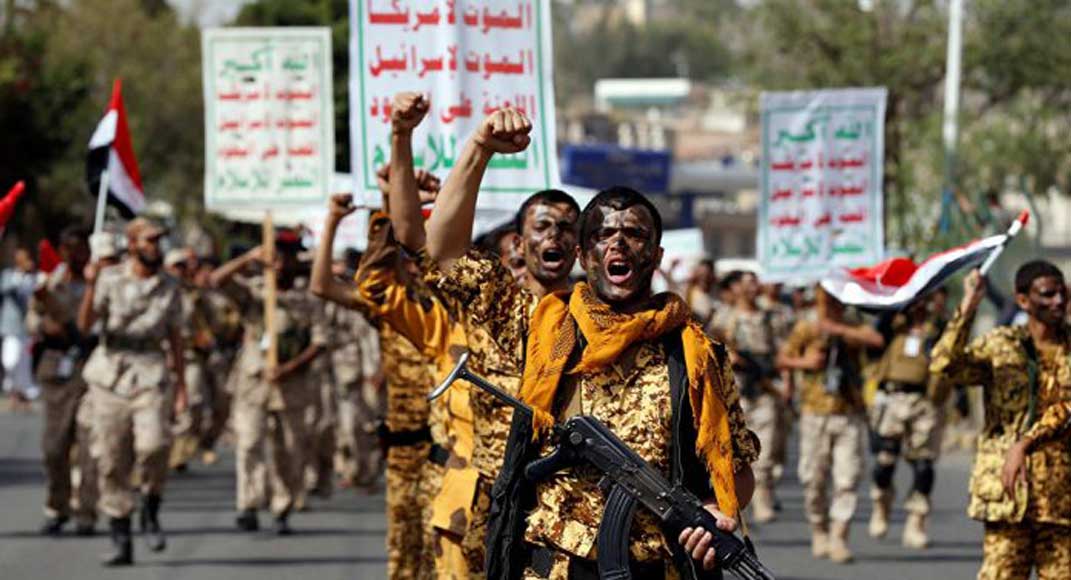
Earlier this year, Ahmad Shaheed, the UN Special Rapporteur on Religious Freedom, stated in a detailed report that the persecution and oppression of the Islamic Regime against Baha’is in Iran has become a model for the Houthis to persecute Baha’is in Sana’a, the capital of Yemen.
Sources close to Houthi’s in Yemen say Houthi militants abducted 65 Baha’is , in August of 2016, including six children. The status of 20 of the abductees is still unknown, and the Houthis have not provided any information about them to their relatives.
According to some estimates, the Baha’i population in Yemen is more than 2,000 people, of whom many live in Yemen’s various provinces.
In an interview with the news outlet Kayhan of London, Naji Ali, a Yemeni journalist based in the UAE, was asked, “Why has harassment and oppression of Baha’is in Yemen intensified, and when did this clampdown begin?” Ali responded, “The Yemeni Baha’is, prior to the opening of ideological exchange and traveling of the Houthis back and forth to Qom for the study of religious teachings in Iran especially in Qom and Mashhad, were immune from any harassment and assault and lived in peace as part of the various religious mosaic of the country. Yemen, like many other Middle Eastern countries such as Iran, Iraq, and Egypt, have different religions and throughout the history the followers of Judaism, Christianity, Baha’i Faith and Islam with its various Shiite and Ismaili sects lived with each other in peace. But as soon as the Houthi terrorist group was introduced to Qom, this group was influenced by anti-Baha’i teachings in Qom and Tehran, and a cultural campaign of ‘antagonism towards others’ not only against Baha’is, but also against Jews and other religious followers in Yemen was promoted. The Houthis, through following the teachings of some anti-Baha’i religious leaders in Iran, had begun to persecute the Baha’is even before they started their attack on Sana’a with the coup d’état to force the lawful ruling government from the capital to Aden and overtake the capital of Yemen with the help of Iran’s regime and Abdullah Saleh, the deposed dictator.”
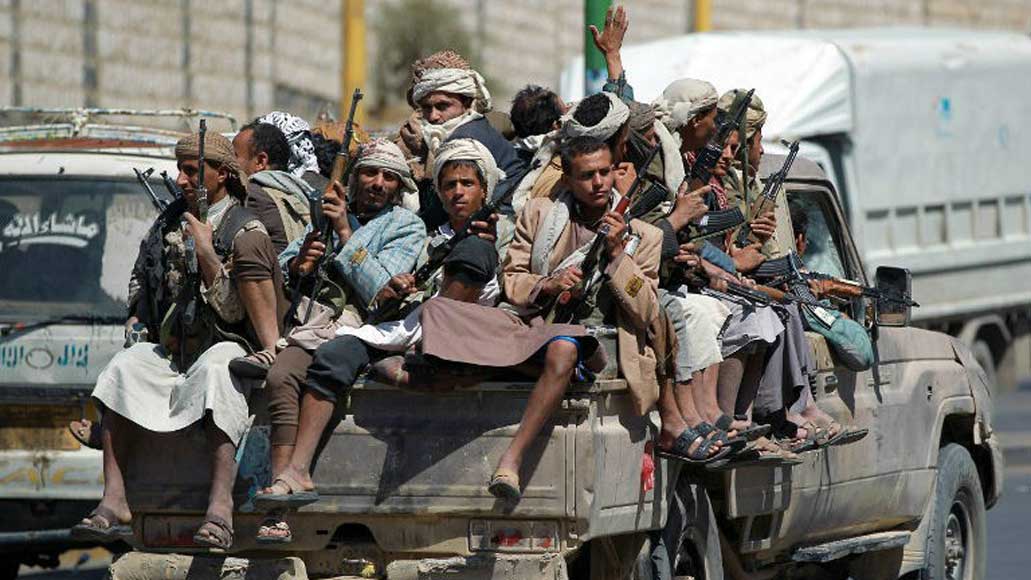
Naji Ali added, “The Houthi activities in suppressing the Baha’is is done with direct Iranian supervision, and the Houthis, through repression and assassination, play precisely the same role in Yemen that the Hezbollah has played in the terrorization and assassination of its opponents and the opponents of Iran, in Lebanon. With the difference being that the Baha’is in Yemen do not interfere in politics at all. The Houthis even take their slogans, which they have written on their placards, directly from the Iranian regime, the same slogans that the Islamic Republic has taught its degenerate and dissolute Basijis. Slogans with messages of death wishes towards others and propagation of hate and hostility towards the opponents of Velayat-e faqih. Slogans such as: Death to America, Death to Judaism, Death to Christianity, etc. … Houthi’s actions with the Baha’is are contrary to all United Nations resolutions which have called for the release of Baha’i prisoners and detainees.”
Naji Ali continued: “In the time of Ali Abdullah Saleh, although he was a dictator, we did not even have anything in the form of religious discrimination. You know that we have many Jewish citizens who are not unwelcomed guests, since they were here, in Yemen, even before Islam and continue to be there to this day, but what becomes the fate of these citizens when the official Houthi slogan is death to Judaism? In my opinion, the Iranian Regime is like a cancerous tumor which if not obliterated, will spread throughout the entire Middle East, and we will see ruinous sectarian wars in all Islamic countries. Notice Iran’s sectarian actions in Syria have resulted in the deaths of a million people and displacement of nine million, and in Iraq it completely devastated the entire country. In Lebanon, the situation has turned into a government within a government, namely, the government of Hassan Nasrallah and his militia backed by Iran, and the lawful Lebanese government. Iran has been trying hard to follow the Hezbollah prescription to create a version of it in Yemen too. It was called Houthis Ansarollah, but failed, and the Arab coalition with Saudi leadership defeated the plan of the rookie Houthis and the mullahs. Today, they are in Sana’a in regional and international isolation, and under siege form the air and the sea.”
Leave a Reply